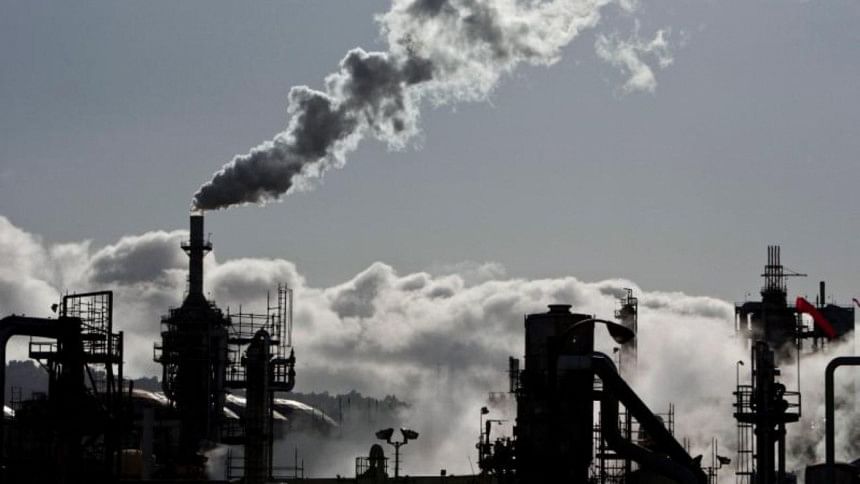Making climate budgeting transparent

Bangladesh is among the world's most at-risk countries in relation to climate change and the Government of Bangladesh has recognised climate change as one of the most serious threats to poverty reduction and development, and as such has made a number of ambitious commitments to tackle it.
The first major innovation was the creation of the Bangladesh Climate Change Strategy and Action Plan (BCCSAP) nearly ten years ago and then the creation of the Bangladesh Climate Change Trust Fund (BCCTF) which has received and spent hundreds of millions of Taka from the government over the years.
Recently, the Ministry of Finance positioned itself as a global leader in climate budgeting—that is, the process of ensuring that the national budget is geared towards reducing climate change impacts.
As part of this, the Ministry of Finance has produced a report—the Climate Financing for Sustainable Development: Budget Report 2018–19 (referred to as CBR)—which sets out in detail exactly how much of the budget is going to climate change adaptation.
The government deserves to be congratulated for publishing information about climate-related budget allocations, as it is one of the first countries in the world to do so.
Having said that, there is a need for the engagement of civil society in the discourse on climate finance. Therefore, the International Centre for Climate Change and Development and ActionAid Bangladesh have undertaken an initiative of consultation with the civil society in a process of reflection on the country's climate budget. This has resulted in a set of suggestions from the civil society to the government:
Firstly, they welcomed the government's Climate Budget Report and asked it to continue with its efforts to disseminate it widely across the country, to allow citizens to discuss and comment on it.
They asked the government to set a target for the share of the budget going to climate-related activities, and suggested an increase in real terms by 5 percent next year. This translates into climate change spending accounting for 9.8 percent of the 2019-20 budget.
They also welcomed the revision of the BCCSAP that is underway, and requested that the new plan be costed, as this will be critical to facilitate an assessment of climate financing needs for Bangladesh, and could inform future spending targets for the climate budget.
There was also a call to the government and civil society to focus not only on the quantity of climate allocations but also on their quality, so as to give due consideration to the priorities of poor and marginal communities, including women, children, indigenous persons and disabled persons. It was recommended that the next climate budget measure the amount of money allocated to the local level.
They suggested that the Climate Budget Report set thematic spending targets in line with the Sustainable Development Goals and other government climate policy planning and strategy documents (including the revised BCCSAP).
For improving the technical aspects of the Climate Budget Report, they recommended that both real and nominal allocations be measured, to take account of inflation; both positive and negative allocations be included, where negative is defined as funds spent on projects that cause maladaptation and increase emission levels; and past expenditures as well as planned allocations be measured.
Lastly, they welcomed the concept of working together with the government to take these recommendations forward, which could be achieved through the establishment of a joint government and civil society monitoring task force, to strengthen coordination, reporting and monitoring of the climate budget.
The report will be officially presented to the Ministry of Finance for due consideration on November 29, 2018.
Bangladesh now has opened the path to enhancing transparency of budget allocation to tackle climate change and can make it even more effective by engaging with civil society to ensure effective monitoring of the expenditures over the next fiscal year.
Saleemul Huq is Director, International Centre for Climate Change and Development at the Independent University, Bangladesh.
Email: [email protected]






Comments